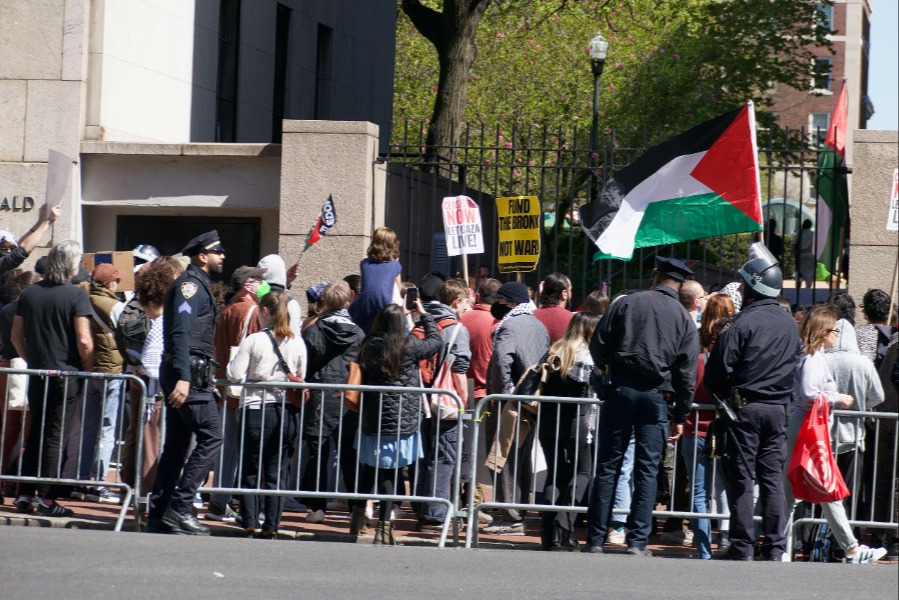Terror Watch Lists and Adverse Action
In the wake of the Orlando shootings, many have suggested that the presence of Omar Mateen on the terrorist watch list is grounds for ... well, lots of things, ranging from denying him a firearms purchase to placing him under greater surveillance, etc. It is useful, in my view, to review some of the facts regarding the operation and management of those watch lists -- if only to put these suggested supplemental activities into context.
Published by The Lawfare Institute
in Cooperation With

In the wake of the Orlando shootings, many have suggested that the presence of Omar Mateen on the terrorist watch list is grounds for ... well, lots of things, ranging from denying him a firearms purchase to placing him under greater surveillance, etc. It is useful, in my view, to review some of the facts regarding the operation and management of those watch lists -- if only to put these suggested supplemental activities into context.
The Terrorist Screening Database (TSDB) is what most people mean when the speak of the "terrorist watch list." It is maintained by the FBI and consists exclusively of an biographic information database listing -- that is names, addresses and other identifying information -- of people with suspected terrorist connections. It does NOT contain classified information relating to why or how the individual was put on the list. That data is retained in the Terrorist Identities Datamart Environment (TIDE) which is maintained by the National Counterterrorism Center (NCTC). So think of TIDE as the list of everything we know about bad guys including the "why" of it, and the TSDB as the public facing list available to agencies of the government, that includes only the "who" of it.
Two criteria are necessary in order for entry into the TSDB. The first is that there is "reasonable suspicion" that the identified person is engaging in or aiding terrorist activity. [As legal readers will no doubt recognize, reasonable suspicion is a relatively low level of proof -- lower, say, than "probable cause" and, of course, much lower than a preponderance of the evidence or proof beyond a reasonable doubt.] Second there must be sufficient fidelity to the data that it can be used to identify an individual. If all we have about an individual is a first name, for example, that is not enough for inclusion, even if the proof of terrorist connection is strong. Civil libertarians have long-standing complaints about the watch list and its accuracy, as well as about the adequacy of redress mechanisms for challenging an entry onto the list as mistaken.
The TSDB is a master list. It is, in turn, used to create narrower, more specific lists for specific purposes. The No Fly list, for example is a list of those individuals in the TSDB for which there is proof above and beyond the reasonable suspicion standard of a threat to aviation security. It is also used to create the Selectee list fore people who are subject to secondary screening. In other words Selectee is a lower category than No Fly -- the former is a "flag" for inquiry; the latter is an absolute ban on flight.
The TSDB is also the source for the KST list -- the list of people "known or appropriately suspected to be or have been engaged in conduct constituting, in preparation for, in aid of, or related to terrorism.” Today, the KST list is checked by the National Instant Criminal Background Check System (NICS) when firearm purchases are attempted. Being on the list is not an absolute barrier to purchase -- it creates a "flag" for further inquiry, in much the same way as being on the "Selectee" list creates the further inquiry of secondary screening at the airport.
My understanding (and gun control law is outside my direct expertise so this may be slightly in error) is that currently absolute bans on gun purchases apply to felons whose rights to possess guns have not been restored; fugitives from justice; illegal immigrants; and others in a few remaining statutory categories. The suggestion to "ban" people on the terrorist watch list from buying guns is, in effect, a proposal to change the status of being on the KST from a "flag" for further inquiry into an absolute ban on purchase if you are on the list.
There is much to be said about this proposal -- including noting the irony of civil liberties organizations who complain regularly about the accuracy of these lists now turning to them for solace. For myself, I tend to think that a higher standard akin to what is necessary for the No Fly list inclusion would be appropriate for inclusion in the KST "no purchase" list we are proposing to create.
But the real problem here is that this change wouldn't have prevented the Orlando shooting. After the FBI completed its investigations in 2013 and 2014 Mateen was removed from the TSDB. If he had been in the TSDB, perhaps even the KST flag would have been effective in stopping his purchase -- but that's a counter-factual we will never know the answer to since he had been removed. If he isn't in the database in the first place, then all the changes in process in the world won't change the outcome.





